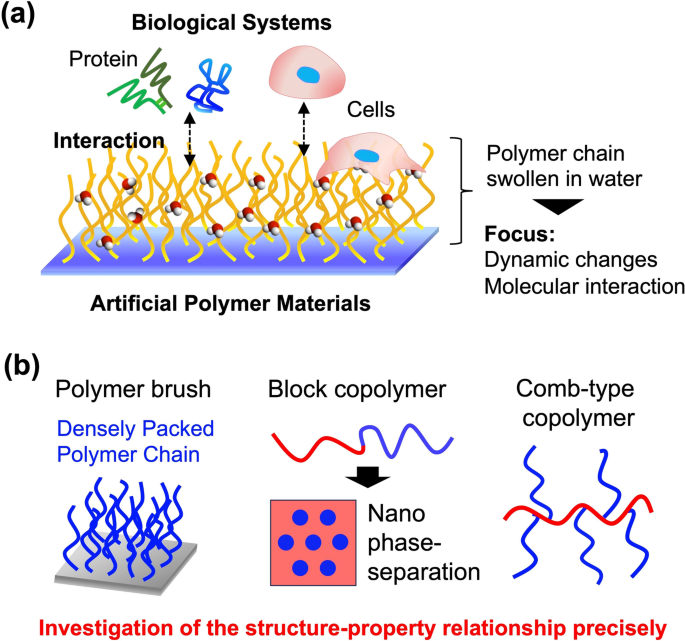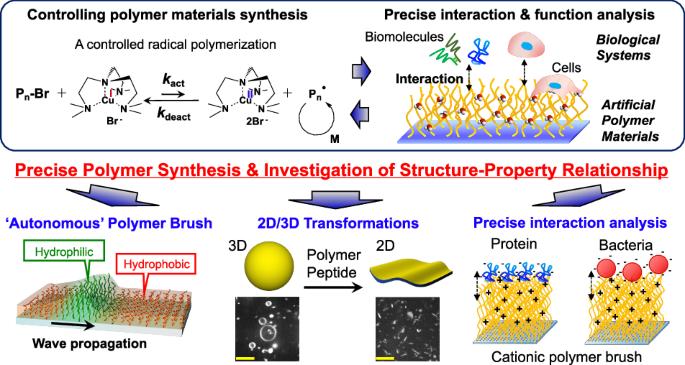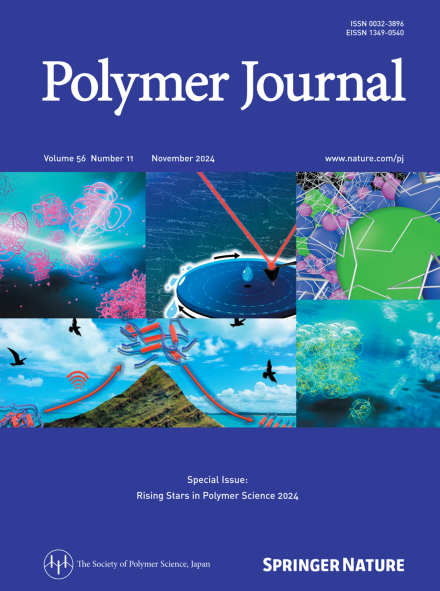Design of functional soft interfaces with precise control of the polymer architecture
IF 2.3
4区 化学
Q3 POLYMER SCIENCE
引用次数: 0
Abstract
Soft interfaces formed by polymer materials are important interfaces for biological systems (biointerfaces), and controlling their chemical and physical structures at the nanoscale plays an important role in understanding the mechanism and development of interface functionalities. Controlled radical polymerization (CRP) is highly suited for designing biointerfaces composed of polymer chains because it enables the formation of well-defined polymer brushes, block copolymers, and comb-type copolymers. This focus review describes the design of functional soft interfaces based on investigations of the structure-property relationships of CRPs. In particular, polymer brush surfaces showing autonomous property changes, 2D/3D transformations of lipid bilayers, and molecular interactions in bactericidal cationic polymer brushes are depicted. Soft interfaces formed by polymer materials are important interfaces for biological systems (biointerfaces). Controlled radical polymerization (CRP) is highly suited for designing biointerfaces composed of polymer chains because it enables precise control of the polymer architecture at the nanoscale. This focus review describes the design of functional soft interfaces based on investigations of the structure-property relationships of CRPs. In particular, polymer brush surfaces showing autonomous property changes, comb-type copolymer-driven 2D/3D transformations of lipid bilayers, and molecular interactions in bactericidal cationic polymer brushes are depicted.


设计功能性软界面,精确控制聚合物结构
高分子材料形成的软界面是生物系统(生物界面)的重要界面,在纳米尺度上控制其化学和物理结构对了解界面功能的机理和开发起着重要作用。受控自由基聚合(CRP)非常适合设计由聚合物链组成的生物界面,因为它可以形成定义明确的聚合物刷、嵌段共聚物和梳型共聚物。本重点综述介绍了基于对 CRP 结构-性能关系研究的功能性软界面设计。其中特别介绍了显示自主性质变化的聚合物刷表面、脂质双层的二维/三维转换以及杀菌阳离子聚合物刷中的分子相互作用。
本文章由计算机程序翻译,如有差异,请以英文原文为准。
求助全文
约1分钟内获得全文
求助全文
来源期刊

Polymer Journal
化学-高分子科学
CiteScore
5.60
自引率
7.10%
发文量
131
审稿时长
2.5 months
期刊介绍:
Polymer Journal promotes research from all aspects of polymer science from anywhere in the world and aims to provide an integrated platform for scientific communication that assists the advancement of polymer science and related fields. The journal publishes Original Articles, Notes, Short Communications and Reviews.
Subject areas and topics of particular interest within the journal''s scope include, but are not limited to, those listed below:
Polymer synthesis and reactions
Polymer structures
Physical properties of polymers
Polymer surface and interfaces
Functional polymers
Supramolecular polymers
Self-assembled materials
Biopolymers and bio-related polymer materials
Polymer engineering.
 求助内容:
求助内容: 应助结果提醒方式:
应助结果提醒方式:


